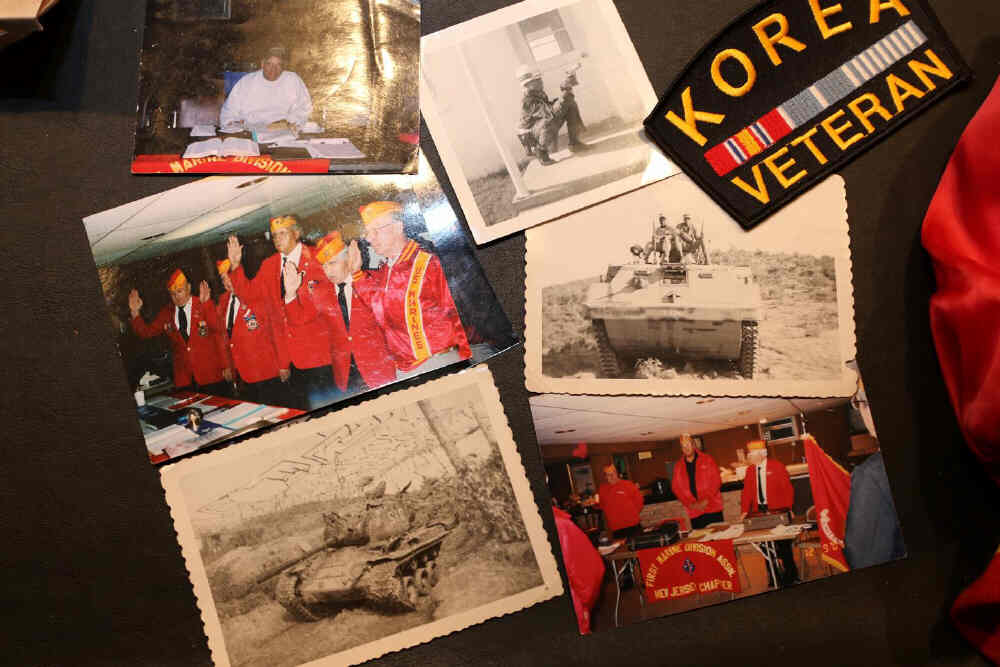By Bruce Doorly - new photos by Dawn Wilde
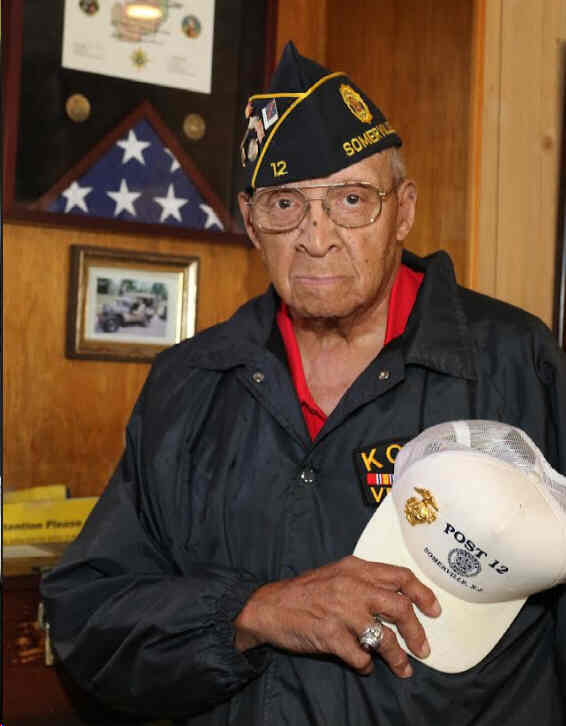
A resident of Somerville since 1967, he has been involved with veteran’s groups throughout his life. Charles was born in 1932. His father was an African American and his mother was an American Indian. He attended Belleville High School, where he was a member of the National Honor Society, graduating in 1950.
Seeing that there were few job opportunities for black men back then he decided to serve his country. He set his sights high - choosing the Marine Corps which he entered in 1951.

But in 1948, President Harry Truman issued Executive Order 9981 which integrated the armed forces. All military personnel - white and black - would now serve together.
While it was the proper decision to ensure fairness and establish a more effective use of manpower, it was initiated during Truman’s election campaign thus many said he did it for the political benefits. Nevertheless, Executive Order 9981 was an important breakthrough in race relations. Despite the order, there was still some resistance inside the military
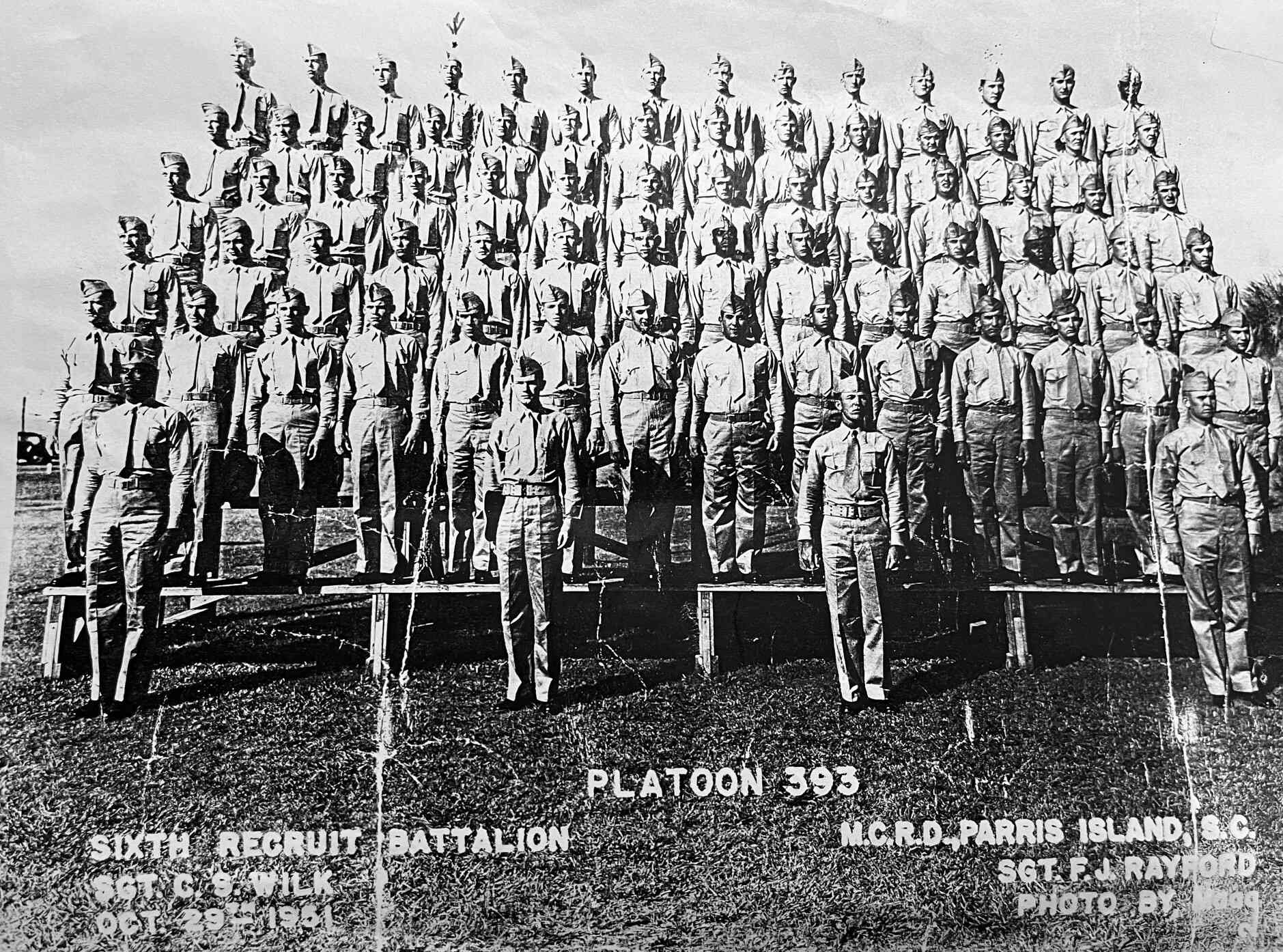
And once, but only once, another soldier refused to work beside him because of his race. After boot camp he was assigned the position of “loader” of ammunition on a M47 tank.
Early in 1952 his unit, along with 5000 other men, made the 20-day journey overseas. They first landed in Japan and then went to the battlefront moving into the South Korean capital of Seoul. At that point of the war there was significant fighting, but it was mostly a stalemate along the 38th parallel. No significant gains were being made by either side.
Peace negotiations between Washington and North Korea were ongoing, but they could not come to terms to bring an end to the war.
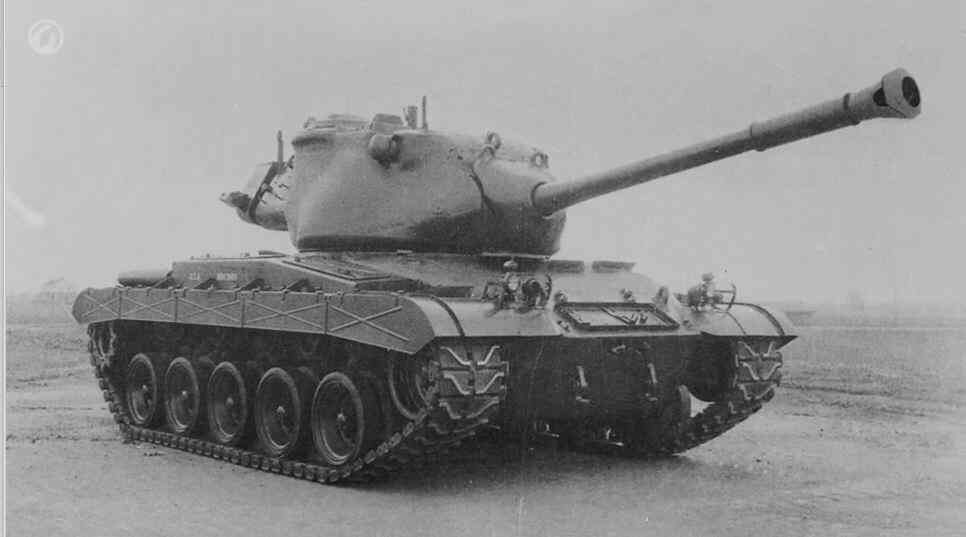
Not all the fighting was in major battles. For the enemy - the North Koreans – often fought “guerilla style” – sneaking up on them to launch a “hit and run” attack.
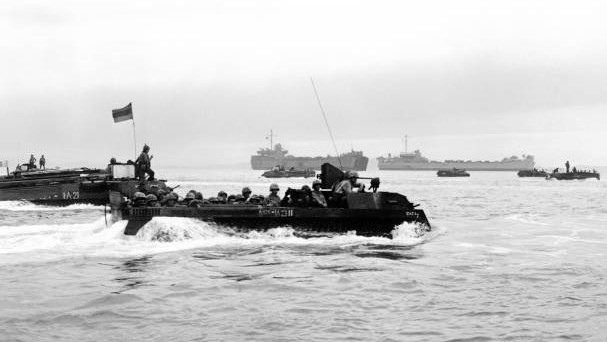
Besides being a loader in a tank, another important duty that he did was that of an Amtrac Driver transporting soldiers across a river to and from the battlefront. This was no easy task as due to the extreme cold random blocks of ice impeded their path.
While in Korea he would get promoted from Private to Corporal.
Charles and the rest of the troops found Korea to be very cold and dirty.
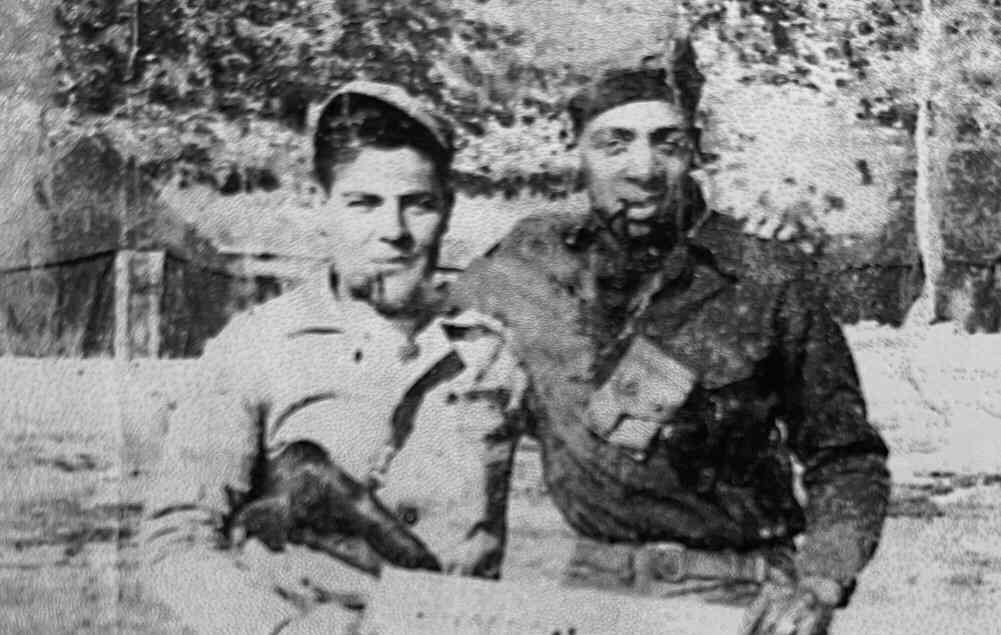
While in Korea their commanders told them that the purpose of their fighting was to stop the spread of communism. But while fighting in such conditions that purpose was not all that obvious.
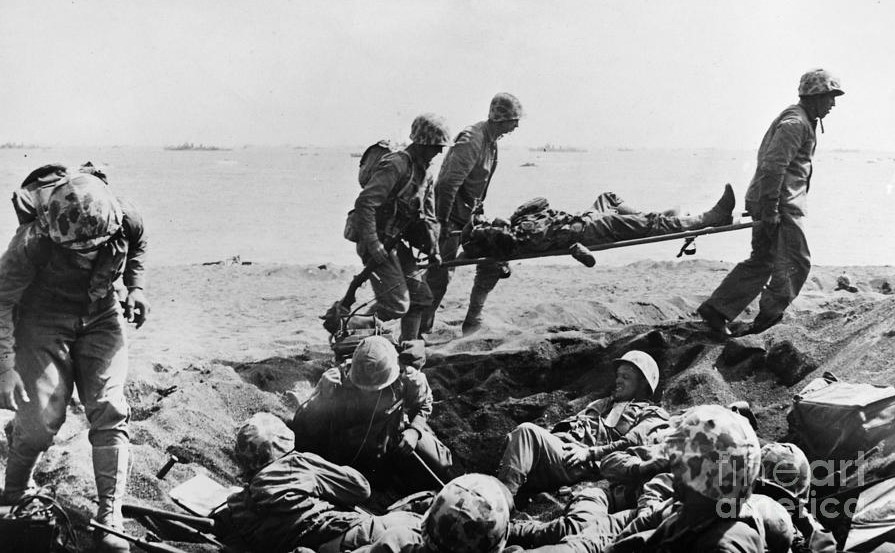
One was in Korea. Ironically it was not while on tank duty. This injury occurred when an enemy shell exploded nearby causing wood pieces to strike him in the head. He was knocked unconscious.
Undeterred to do his duty, he recovered in a few days to return to his unit. Unfortunately, he never received a Purple Heart for his injury.

Just after Korea, while training in Puerto Rico for duty in Vietnam, when riding with others on the back of a truck, the driver spun out of control causing the men to be injured when they were thrown violently to the ground. He recalled that they had to wait an hour for help to arrive.
That time he needed to be airlifted to Fort Brook Army Hospital in San Juan. He suffered nerve damage to the right side of his face and needed surgery to have a piece of metal removed. He still carries this injury with him today.
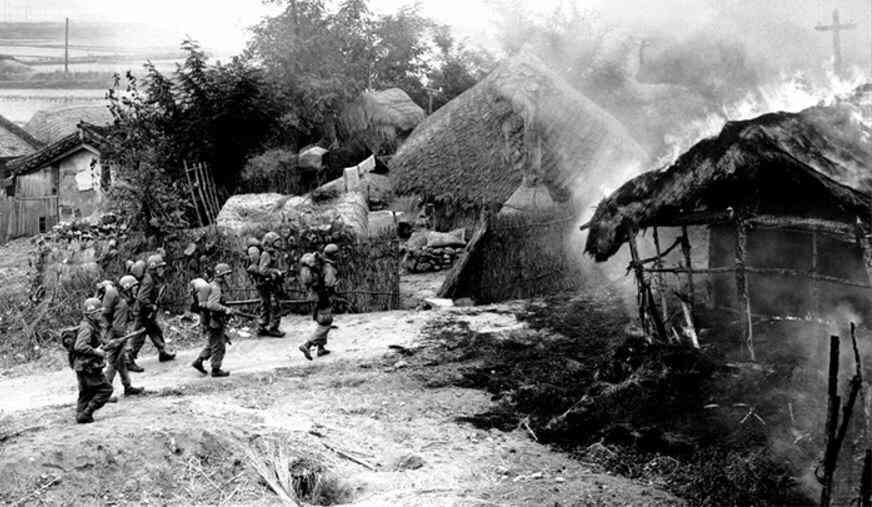
The Marines would bring him back to their camp and take care of him. Charles became close to him and later inquired if he could bring Asa back to the United States with him. However, the request was denied. Asa was later placed in an orphanage.
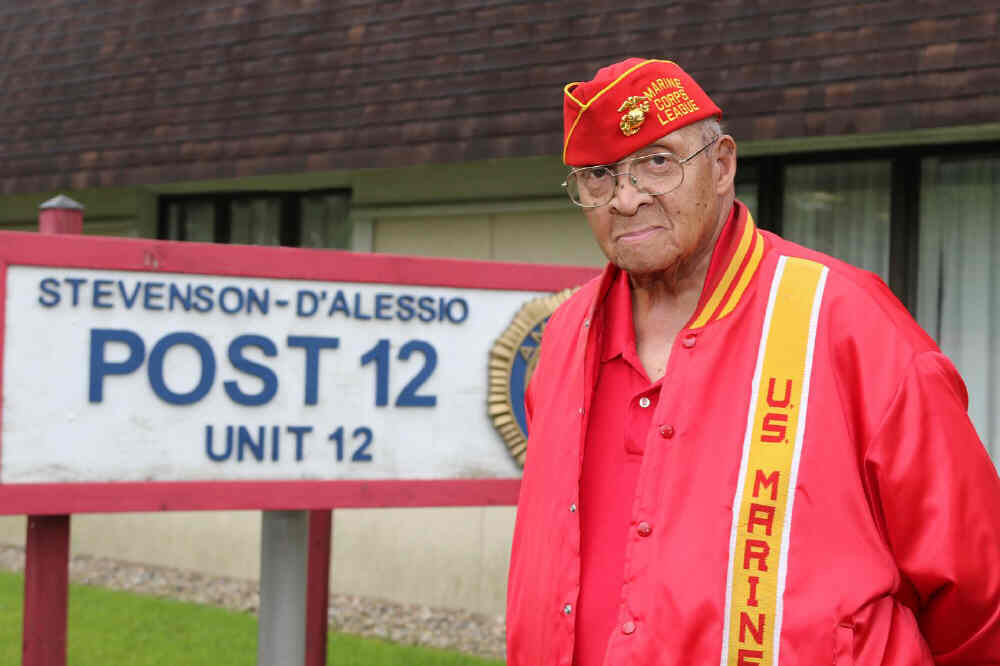
Ever active in community and veteran’s affairs he has been a member of the American Legion for 58 years. He is also past President of the New Jersey Chapter of the 1st Marine Division.
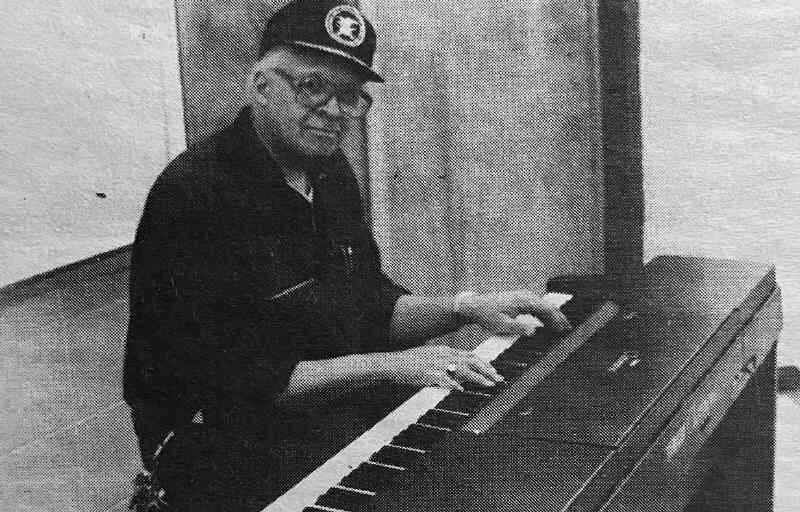
Back in 1956 in a club in Passaic he once played a gig with an emerging rockstar named Chuck Berry.
Once while back in the service he was called to duty as a musician. While in Japan, a commander recognized him as a musician from back home. He asked Charles to play piano one night for a Japanese singer whose stage name was “Maaco Moga”. He gladly accepted this assignment.
Charles Wynn played up until a few years ago, but now his hands have arthritis which prevents him from playing.
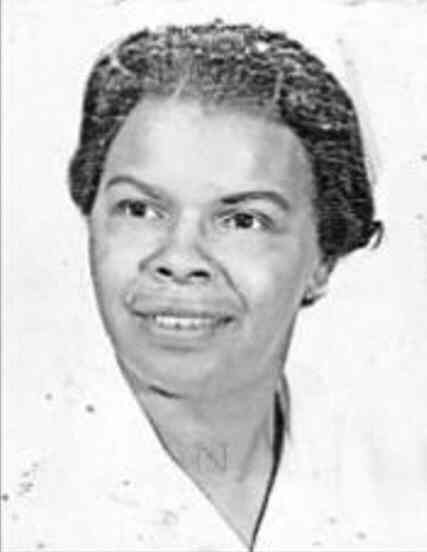
They moved to Somerville in 1967. Gloria was a registered nurse who served at the Somerset Medical Center (now Robert Wood Johnson at Somerset) for many years. She also later served in private practice. Like her husband she was involved locally serving in the American Nurses Association and the National Council for Negro Women.
Charles and Gloria would have two sons together - Gerry and Robert. In addition, they would serve as foster parents for several years to four children who were in need of a home and some guidance. Sadly, Gloria passed away in 2018 after 62 years of marriage.
